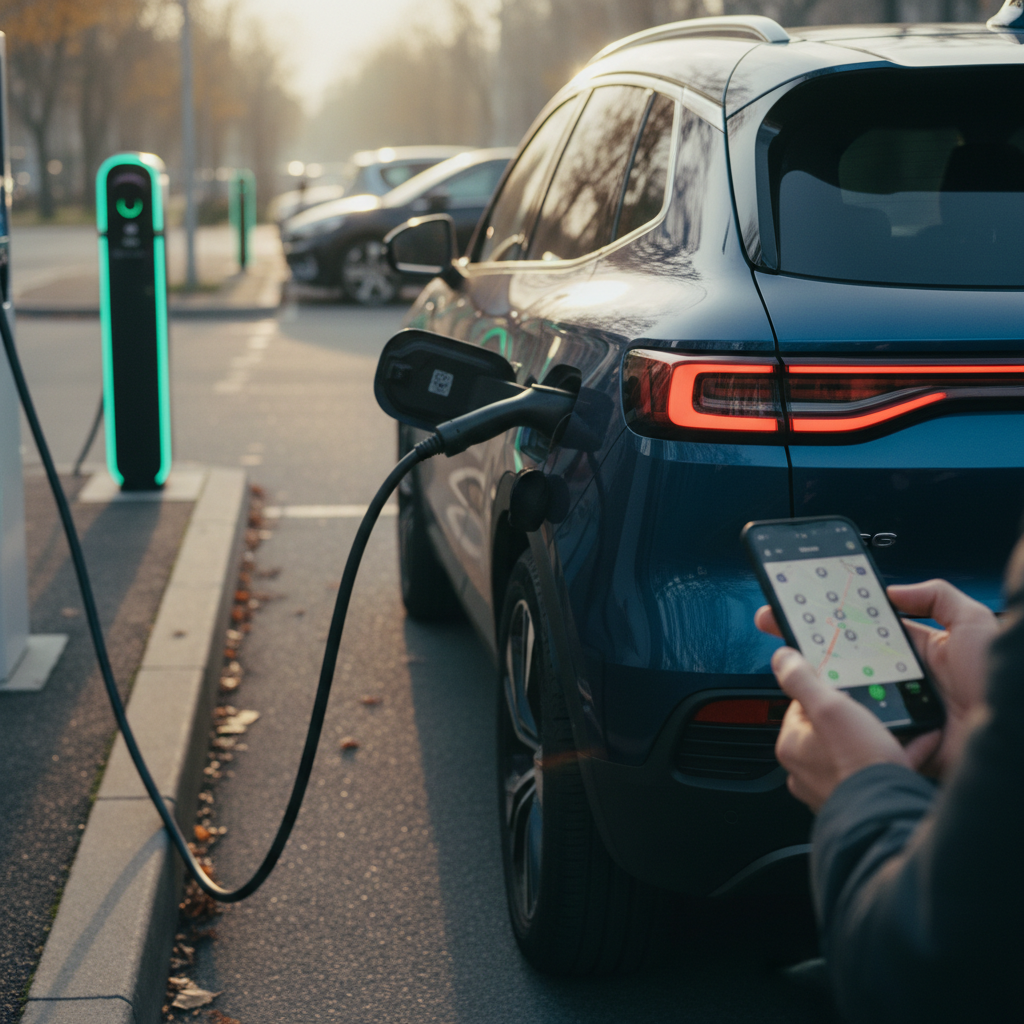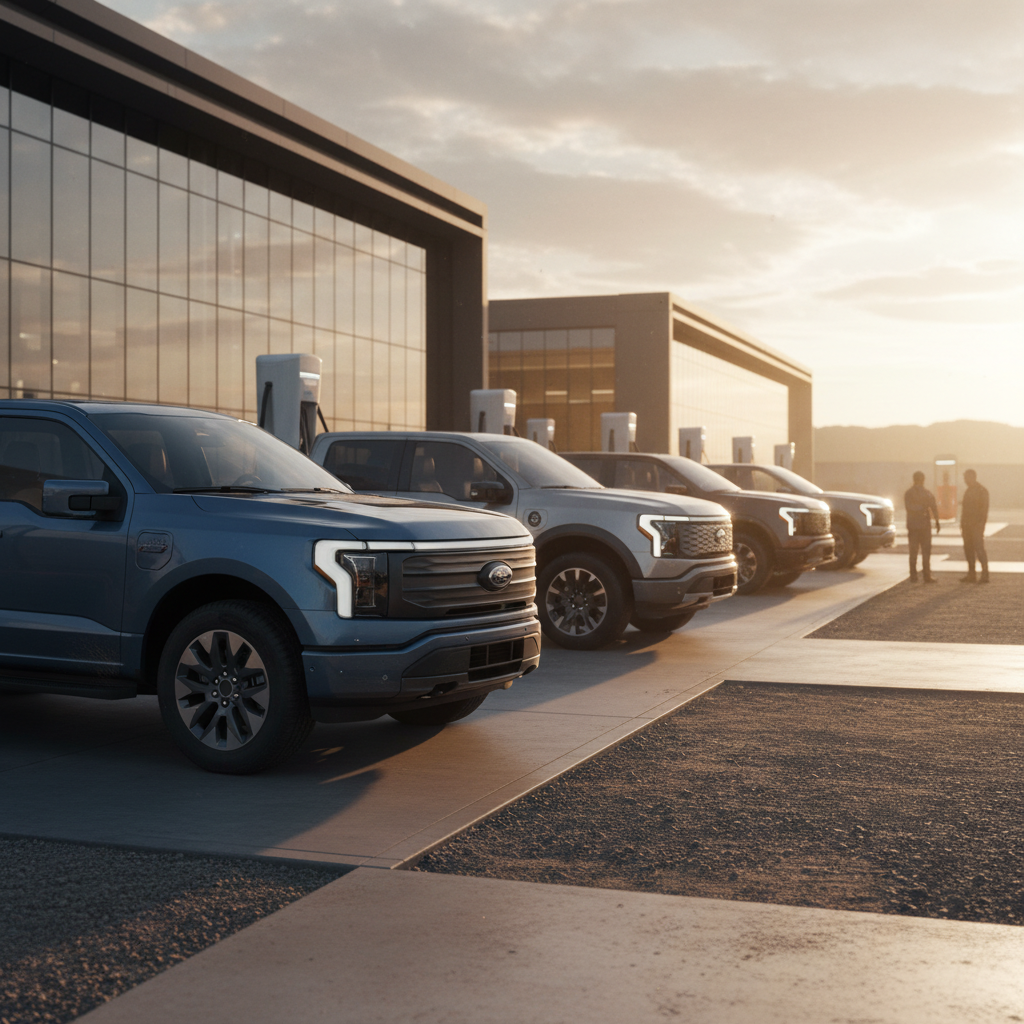If you’ve typed “hybrid car shop near me” into your browser lately, you’re not alone. In the U.S., hybrids have been one of the fastest-growing segments since 2024 as shoppers look for better fuel economy without going fully electric. That surge in demand means more choices than ever, but also more homework if you want a fair deal and a hybrid that will actually save you money long-term.
Why this guide matters
Why hybrids are so popular in 2025
Hybrid market snapshot for shoppers
Several forces are pushing shoppers toward hybrids right now. Gas prices are volatile, but fuel-efficient cars are a steady hedge. Charging infrastructure is improving, yet many drivers still don’t feel ready to rely on public chargers or home charging alone. Hybrids offer a bridge: you get meaningful fuel savings, far lower emissions than a typical gas car, and none of the range anxiety that still keeps some buyers away from full EVs.
Hybrid as a “transition” vehicle
Types of hybrid car shops near you
Where you’ll find hybrids for sale
Most shoppers will encounter four main types of hybrid sellers.
Franchise new‑car dealers
Brand stores (Toyota, Honda, Ford, etc.) selling new and certified pre‑owned (CPO) hybrids.
- Newest tech and safety features
- Access to OEM incentives and leases
- Often strongest warranty support
Independent used car lots
Local dealers with mixed inventory, gas, hybrid, and sometimes EV.
- Potentially lower prices
- Quality can vary widely
- Warranties may be limited or third‑party
Online marketplaces
Car search sites and digital‑first retailers.
- Large, searchable inventory
- Easy price comparisons
- Variable inspection depth
EV & hybrid specialists
Used EV/hybrid specialists like Recharged.
- Battery health diagnostics
- Staff trained on electrified vehicles
- Transparent pricing and digital buying
When you search for a “hybrid car shop near me”, you’ll likely see all of these options in your results. The right fit depends on your priorities: budget, warranty, how comfortable you are with used cars, and how much support you want after the sale. For many buyers, a hybrid‑savvy used retailer or EV marketplace strikes a good balance between price and peace of mind.
How to actually search for a “hybrid car shop near me”
- Start with Google Maps or Apple Maps and search terms like “hybrid car shop near me”, “hybrid dealer near me”, or “used hybrid cars”.
- Filter results by rating (aim for 4.3 stars and up) and read recent reviews that specifically mention hybrids or EVs.
- Visit dealer websites and inventory pages, search for keywords like “hybrid”, “plug‑in hybrid”, or specific models like Prius, RAV4 Hybrid, or Accord Hybrid.
- Check whether the store has any EV or hybrid certification, dedicated electrified-vehicle pages, or technicians trained on high-voltage systems.
- Compare what you find locally with EV‑focused online retailers such as Recharged that offer nationwide delivery and transparent battery reports.
Watch out for “keyword stuffing”
What to look for in a hybrid dealer or used lot
1. True hybrid expertise
Ask how often they sell hybrids and which models they specialize in. A strong hybrid shop should:
- Know the difference between regular hybrids, plug‑in hybrids, and mild hybrids.
- Explain common issues for popular models (e.g., battery longevity, brake system quirks).
- Offer documentation for any hybrid‑specific service already performed.
2. Inspection and reconditioning process
For used hybrids, a basic safety inspection isn’t enough. Look for:
- A documented multi‑point inspection including the high‑voltage system.
- Road test notes about transitions between gas and electric drive.
- Evidence of recent maintenance: oil change, coolant, hybrid system service where applicable.
3 more signs you’ve found a trustworthy hybrid car shop
Clear warranties
Good dealers are transparent about what’s covered, for how long, and whether the hybrid battery has any remaining factory coverage.
Honest pricing
Look for market‑based pricing backed by comps or third‑party valuation tools, not just inflated “discounts” off made‑up sticker prices.
No-pressure sales
Hybrid‑savvy teams can answer detailed questions without pushing you into an upsell. If you feel rushed, shop elsewhere.
Where Recharged fits in
Inspecting a used hybrid before you buy

A hybrid packs both an internal combustion engine and an electric drive system. That means more parts, and more places for a neglected vehicle to hide problems. You don’t need to be a master tech, but you should know what to ask and what to look for before you sign anything.
Used hybrid inspection essentials
1. Hybrid battery health
Ask for a <strong>hybrid or high‑voltage battery health report</strong>. Some automakers provide dealer‑level diagnostic tools; specialists like Recharged use their own battery analytics as part of the Recharged Score.
2. Service history
Look for consistent maintenance, oil changes, coolant service, brake fluid, and any recalls or software updates. Irregular or missing service records are a red flag, especially on older, higher‑mileage hybrids.
3. Road-test behavior
On your test drive, listen for rough transitions between engine and electric mode, unnatural vibrations, or warning lights. The car should start, stop, and switch power sources smoothly.
4. Warning lights and codes
Before purchase, request a scan for trouble codes, focusing on hybrid control units and battery management. A simple OBD check can reveal issues that haven’t yet triggered dashboard lights.
5. Tire and brake wear
Hybrids use regenerative braking, so pads may last longer, but uneven wear or pulsation under braking can signal neglected maintenance or suspension issues.
6. Remaining factory warranty
In many states, hybrid components are covered longer than regular powertrain parts. Ask the shop to verify the in‑service date so you know exactly how much factory coverage is left, if any.
Never ignore a hybrid warning light

Financing and total cost of owning a used hybrid
One reason shoppers search for a hybrid car shop near me is simple: they’re trying to lower their monthly fuel bill without raising their car payment too much. Hybrids can absolutely deliver on that, but only if you pay attention to more than just the sale price.
Hybrid vs gas: cost factors to compare
Use this as a quick framework when you’re comparing offers between dealers or between a hybrid and a similar gas model.
| Category | Typical Gas Car | Typical Hybrid |
|---|---|---|
| Purchase price | Lower upfront (on average) | Sometimes higher upfront, especially with low miles |
| Fuel costs | Higher ongoing fuel spend | Lower fuel use, especially in city driving |
| Maintenance | More frequent oil changes; no hybrid system | Fewer brake jobs; hybrid components may need service later in life |
| Resale value | Can drop quickly with high mileage | Growing demand is helping hybrids hold value better in many markets |
| Incentives | Fewer local incentives | Some states/regions offer perks for hybrids or plug‑ins |
Numbers will vary by model and your driving habits, but the structure of the comparison stays the same.
When you finance, look at the out‑the‑door price and total interest paid, not just the monthly payment. A slightly higher payment for a car that saves you $60–$100 a month in fuel can still come out ahead, especially if that hybrid holds its value better than a comparable gas car.
Ask about EV‑friendly lenders
Local hybrid car shops vs online EV marketplaces
Shopping a hybrid car shop near you
- See and drive the car in person right away.
- Build a relationship with a local service department.
- Easy to negotiate price or trade‑in face to face.
- Selection limited to what’s on the lot today.
Great if you want to inspect several cars in an afternoon and don’t mind doing more legwork yourself.
Using an online EV & hybrid marketplace
- Nationwide selection and easy comparison shopping.
- Digital paperwork and home delivery in many states.
- Standardized inspections and battery health reporting (e.g., the Recharged Score).
- Less haggling; pricing tends to be take‑it‑or‑leave‑it.
Ideal if you value transparency, detailed reports, and are comfortable completing most of the process online.
Hybrid shops aren’t always in your zip code
Step-by-step checklist for shopping a hybrid near you
Your hybrid shopping game plan
1. Set your budget and fuel‑savings goal
Decide what monthly payment you’re comfortable with and how much you’re trying to save on fuel. This will guide which models and model years make sense.
2. Shortlist models
Research common hybrids, Toyota Prius, RAV4 Hybrid, Camry and Corolla Hybrid, Honda Accord and CR‑V Hybrid, Hyundai Ioniq, Ford Escape Hybrid, and list 3–5 that fit your needs.
3. Search “hybrid car shop near me”
Use map apps and dealer sites to find local inventory. In parallel, browse EV‑focused marketplaces like Recharged to benchmark pricing and see what’s available beyond your immediate area.
4. Screen the dealers
Check reviews, look for hybrid expertise on their websites, and eliminate shops with poor ratings or vague information about inspections and warranties.
5. Test drive and inspect
Drive at least two or three hybrids. Ask for inspection reports and, ideally, a battery health assessment. Don’t rush, hybrids can feel different from gas cars at first.
6. Compare total deals
Line up offers side by side: out‑the‑door price, finance terms, warranty, and condition. Include <strong>fuel savings</strong> and projected resale value in your comparison, not just today’s payment.
7. Close the deal, on your terms
Whether you buy locally or from an online retailer like Recharged, take the time to read the contract, confirm fees, and save all inspection and battery reports for your records.
FAQ: Buying from a hybrid car shop near you
Frequently asked questions
Key takeaways before you visit a hybrid car shop
Searching for a “hybrid car shop near me” is just the first step. The real win is finding a seller that understands electrified vehicles, is transparent about inspection and battery health, and offers pricing that makes sense when you factor in fuel savings and resale value. Don’t be afraid to walk away from a lot that can’t answer detailed questions, or to expand your search beyond your zip code.



